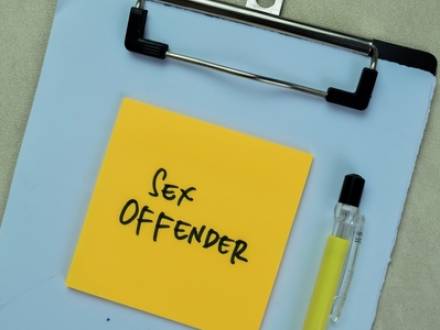Penalties for Failure to Register as a Texas Sex Offender
 In the state of Texas, those convicted of certain sex offenses, especially sex offenses against children, must legally register as sex offenders under the Sex Offender Registration Program. The sex offender registry is not optional, and failure to comply comes with serious legal consequences. Something as simple as forgetting to update a home address or more serious issues, such as skipping annual verification or willfully avoiding registration, can trigger felony charges, extended registration periods, and even prison time.
In the state of Texas, those convicted of certain sex offenses, especially sex offenses against children, must legally register as sex offenders under the Sex Offender Registration Program. The sex offender registry is not optional, and failure to comply comes with serious legal consequences. Something as simple as forgetting to update a home address or more serious issues, such as skipping annual verification or willfully avoiding registration, can trigger felony charges, extended registration periods, and even prison time.
If you are facing charges of failing to register or another type of sex offender registry issue, it can be beneficial to know what the law requires and what penalties you face. Having an experienced Plano, TX criminal defense lawyer to walk you through the process can be an invaluable resource. A strong legal defense can potentially keep you out of prison, so it is important that you not wait to "see what happens."
Who Must Register as a Sex Offender in Texas?
Any person with a "reportable conviction or adjudication" for certain sex offenses must register as a sex offender. The registration requirement applies, even if the conviction occurred in another state or country, or while the individual was in the military or overseas. These Texas offenses require sex offender registration:
- Sexual assault
- Sexual performance by a child
- Indecency with a child
- Child pornography
- Online solicitation of a minor
- Kidnapping with intent to commit a sexual offense
- Burglary with the intent to commit a sexual offense
- A second conviction for indecent exposure
The requirement to register as a sex offender may last ten years or for life, depending on the severity of the sexual offense. Sex offenses that involve a minor will result in lifetime registration.
What is Involved in Sex Offender Registration?
Upon release from serving time for a sex crime, there is an initial registration at the law enforcement department in the city of residence. If the offender does not live in a city, then he or she will go to the county law enforcement agency.
Required information includes name, aliases, address, photograph, height, weight, eye and hair color, SS number, DL number, a description of the residence, shoe size, phone numbers (home and work), fingerprints, status (probation or parole), business or professional licenses, employment and education status, vehicle information, and any names or IDs used online.
Updates must be made seven days prior to a move, and then there are another seven days allowed to register the new address. Any changes in employment, health, or education status must be reported within seven days. The most dangerous offenders must register every 30 days, while those with two or more sexually violent offenses must register every 90 days. All others are required to register once per year, provided there are no changes in their information.
What Constitutes "Failure to Register" and What Are the Penalties?
Failure to appear for an in-person verification, failure to report a new address or name change, providing false or incomplete information, missing deadlines, or failing to notify law enforcement prior to moving are all considered failures to register.
Penalties for failure to register depend on whether the offender is required to register for 10 years or for his or her lifetime. For a ten-year registration requirement, failure to comply can result in a state jail felony punishable by 180 days to two years in jail.
For those with lifetime registration requirements, failure to register is a third-degree felony punishable by two to ten years in prison. If the lifetime registration requires 90-day verification, failure to register is a second-degree felony, punishable by two to 20 years in prison. Failure to register can also cause a revocation of parole or probation.
Contact a Collin County, TX Sex Crimes Attorney
Your Plano, TX sex crimes lawyer from The Crowder Law Firm, P.C. may be able to argue lack of intent or misunderstanding, incorrect registration information, or failure due to mental or physical incapacity, depending on your circumstances. Early legal intervention can potentially reduce the severity of the charges. Attorney Crowder has extensive experience defending the most serious crimes, including federal crimes and child sex crimes. Call 214-544-0061 to schedule your free consultation.

















